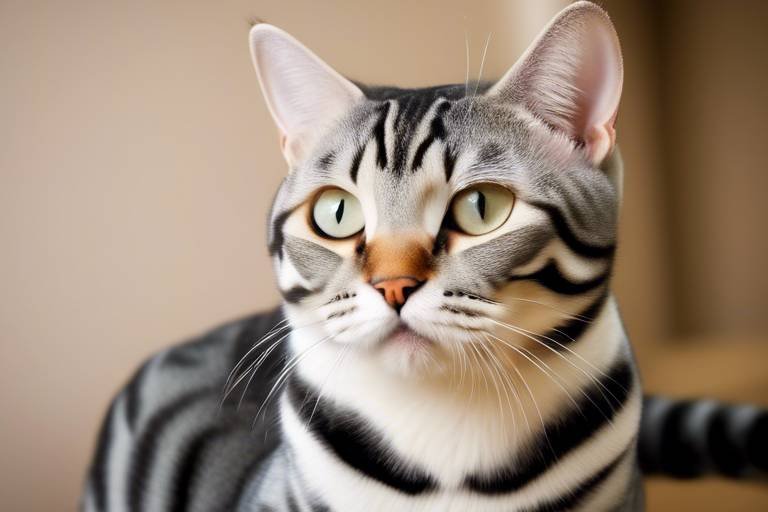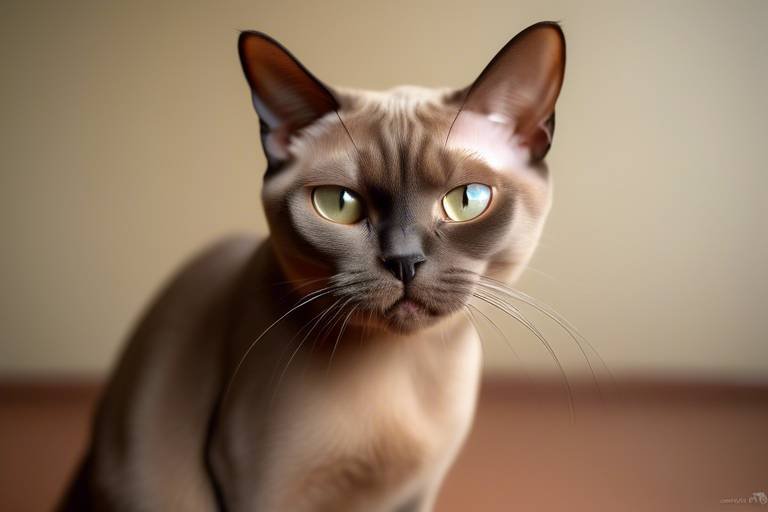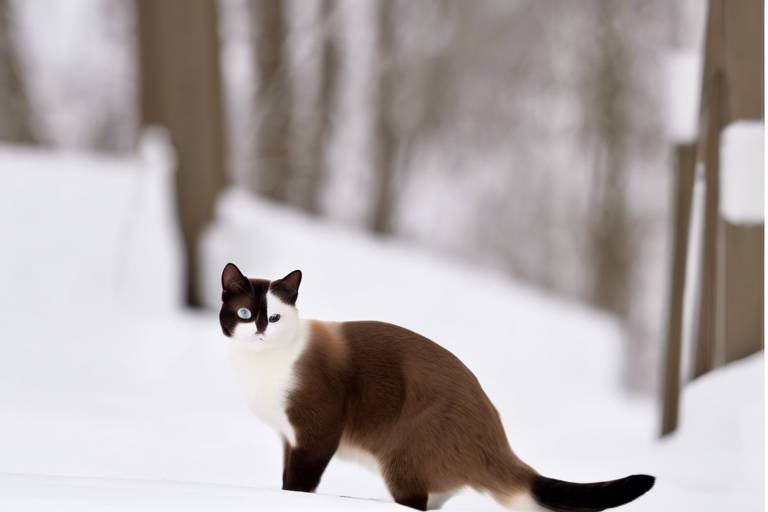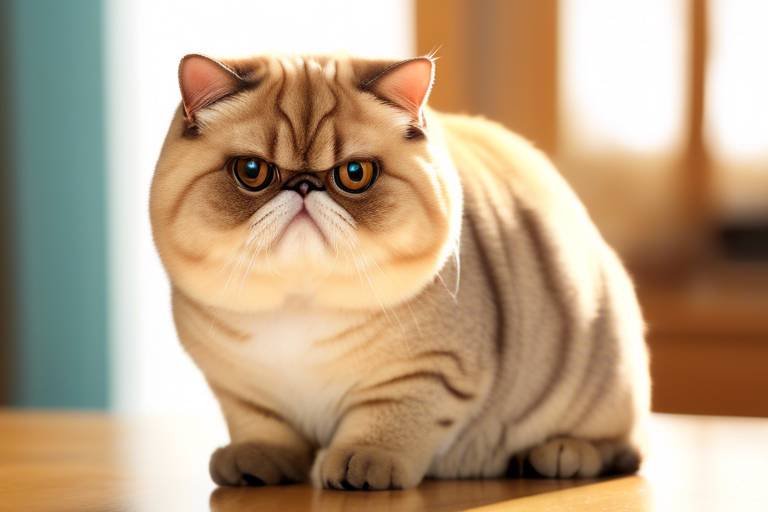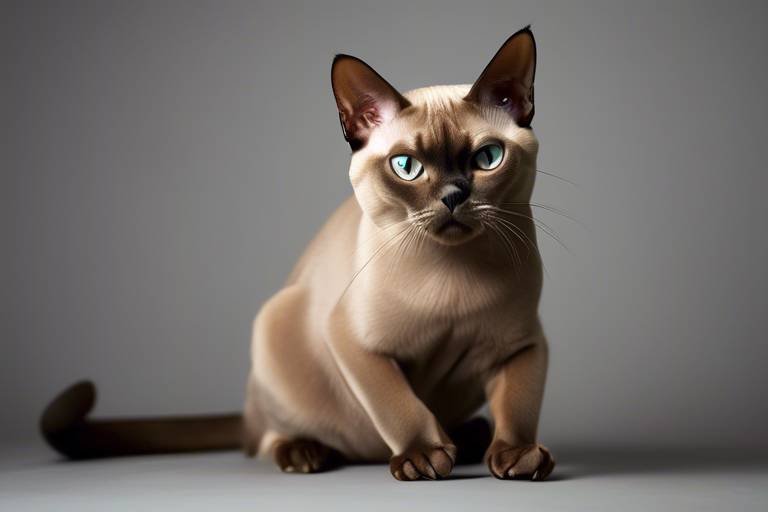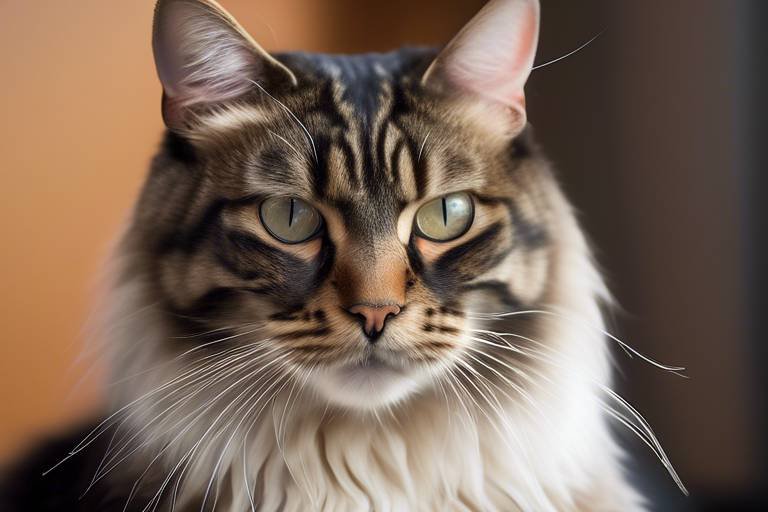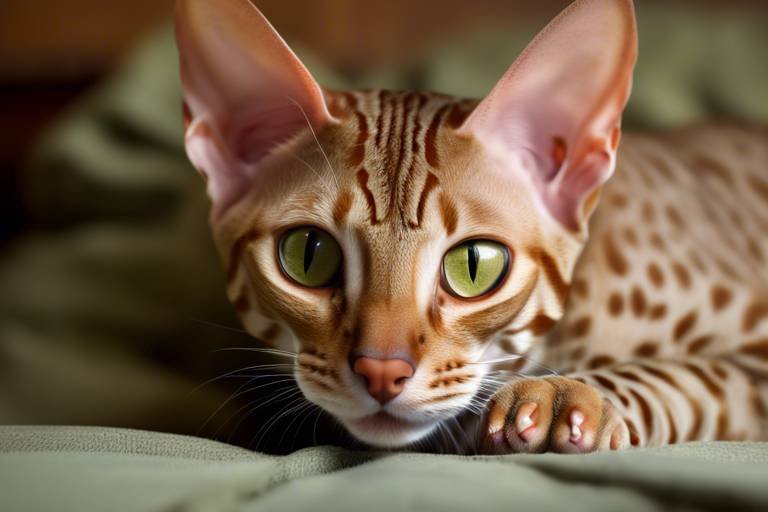Understanding the Characteristics of the Tonkinese Cat
The Tonkinese cat is a breed that has captured the hearts of many cat lovers worldwide. With their unique blend of beauty and personality, these cats stand out not just for their striking appearance but also for their charming behaviors. If you’re considering bringing a Tonkinese into your home, it’s essential to understand what makes them so special. This article dives deep into their physical traits, temperament, health considerations, and more, providing a comprehensive guide for potential owners and enthusiasts alike.
The Tonkinese cat is known for its striking looks, featuring a medium-sized body that is both muscular and graceful. Their short, sleek coat can display a variety of color patterns, including sable, champagne, blue, and platinum, which makes them visually appealing and unique. One of the most captivating features of the Tonkinese is their eyes, which can be a stunning shade of blue or green, often described as almond-shaped, giving them an expressive and lively appearance. These distinct characteristics not only enhance their beauty but also contribute to their overall charm, making them a favorite among cat enthusiasts.
When it comes to personality, Tonkinese cats are renowned for their friendly and sociable temperament. They are not just pets; they are companions who thrive on human interaction. These cats often form strong bonds with their owners, making them excellent choices for families and individuals alike. If you’re someone who enjoys the company of a lively and affectionate pet, a Tonkinese cat might just be the perfect fit for you. Their playful nature and desire for companionship mean they are always ready to engage, whether it’s through playtime or simply curling up next to you on the couch.
One of the standout traits of the Tonkinese cat is their affectionate nature. These cats are incredibly loving and often seek attention and cuddles from their owners. Imagine coming home after a long day to find your furry friend eagerly waiting at the door, ready to shower you with affection. Their loving demeanor makes them ideal pets for those who enjoy a close relationship with their feline friends. They are known to follow their owners around the house, always wanting to be part of the action, which only enhances their appeal as loving companions.
Tonkinese cats are known for their playful behavior, often engaging in interactive games and activities. Their energetic nature keeps them entertained and encourages bonding with their owners through play. Whether it’s chasing after a feather toy or engaging in a game of hide-and-seek, these cats are always up for a challenge. Their playful antics can bring joy and laughter into any household, making them delightful companions.
In addition to their playful side, Tonkinese cats possess a natural curiosity that drives them to explore their surroundings. This inquisitive nature can lead to entertaining antics, making them a joy to watch as they investigate new sights and sounds in their environment. You might find them perched on a windowsill, observing the world outside, or investigating every nook and cranny of your home. Their curiosity not only keeps them mentally stimulated but also provides endless entertainment for their owners.
Tonkinese cats are also highly intelligent, often displaying impressive problem-solving skills and the ability to learn tricks quickly. Their sharp minds make them engaging companions, challenging owners to keep their environment stimulating. Just like a child, they thrive on learning and can often be seen figuring out puzzles or even playing fetch. This intelligence means that they require mental stimulation, so providing them with toys that challenge their minds is crucial for their happiness.
Like all breeds, Tonkinese cats have specific health considerations to be aware of. Regular veterinary check-ups and a balanced diet are essential for maintaining their overall health and longevity. Being proactive about their health can help prevent many issues before they arise. It's vital to be informed about potential health concerns to ensure your furry friend lives a long, healthy life.
Tonkinese cats may be prone to certain genetic health issues, such as dental problems and respiratory conditions. Awareness of these potential concerns can help owners provide better care and preventive measures. Regular dental check-ups and maintaining a healthy weight can significantly impact their quality of life.
Regular preventive care, including vaccinations and dental hygiene, plays a crucial role in maintaining the health of Tonkinese cats. Establishing a routine with a veterinarian ensures early detection of any health issues. By being proactive, you can help your Tonkinese thrive and enjoy a vibrant life. Remember, a healthy cat is a happy cat, and your efforts in preventive care will pay off in the long run.
- Are Tonkinese cats hypoallergenic? While no cat is completely hypoallergenic, Tonkinese cats are known to produce fewer allergens compared to other breeds.
- How much exercise do Tonkinese cats need? Tonkinese cats are active and playful, requiring regular playtime and mental stimulation to stay happy.
- What is the lifespan of a Tonkinese cat? With proper care, Tonkinese cats can live between 12 to 16 years.
- Do Tonkinese cats get along with other pets? Generally, Tonkinese cats are friendly and can get along well with other pets if introduced properly.
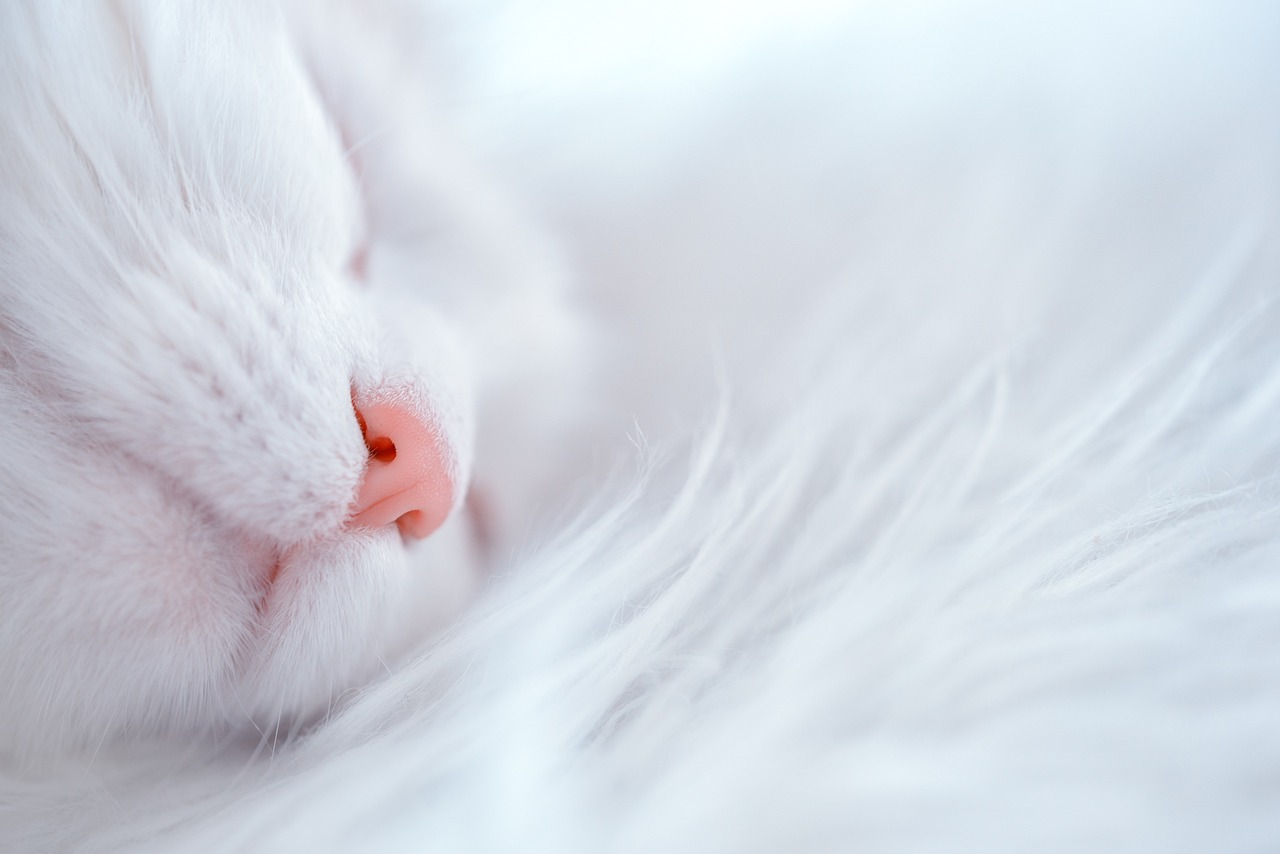
Physical Appearance
The Tonkinese cat is a breed that truly captivates with its striking looks. Imagine a medium-sized feline with a sleek, muscular body that exudes both elegance and strength. Their short coat is not only soft to the touch but also comes in a variety of stunning colors that can leave anyone mesmerized. The most common colors include sable, champagne, blue, and platinum, each adding a unique flair to their appearance. What truly sets them apart, however, are their mesmerizing eyes. Whether it's a deep blue or a vibrant green, these cats have a gaze that can melt your heart.
One of the most fascinating aspects of the Tonkinese is their color pattern, which is a delightful blend of the Burmese and Siamese breeds. This breed typically exhibits a point coloration, meaning their extremities (ears, face, paws, and tail) are darker than their body. This unique blend creates a striking contrast that makes them visually appealing. The transition from the darker points to the lighter body color is often smooth and seamless, giving them an almost ethereal quality.
When it comes to size, Tonkinese cats are medium-sized, typically weighing between 6 to 12 pounds, which makes them just the right size to cuddle with. Their body is well-proportioned, with a straight back and a rounded head that features a short, wedge-like shape. Their ears are medium in size, slightly rounded at the tips, and set wide apart, adding to their alert and inquisitive expression. Additionally, their legs are long and slender, leading to small, oval paws that enhance their graceful appearance.
Overall, the Tonkinese cat is not just a pretty face; they embody a blend of beauty and charm that is hard to resist. Their unique appearance, combined with their engaging personality, makes them a popular choice for cat lovers. If you’re considering adding a Tonkinese to your family, you can expect a feline friend that is not only stunning but also full of life and affection.
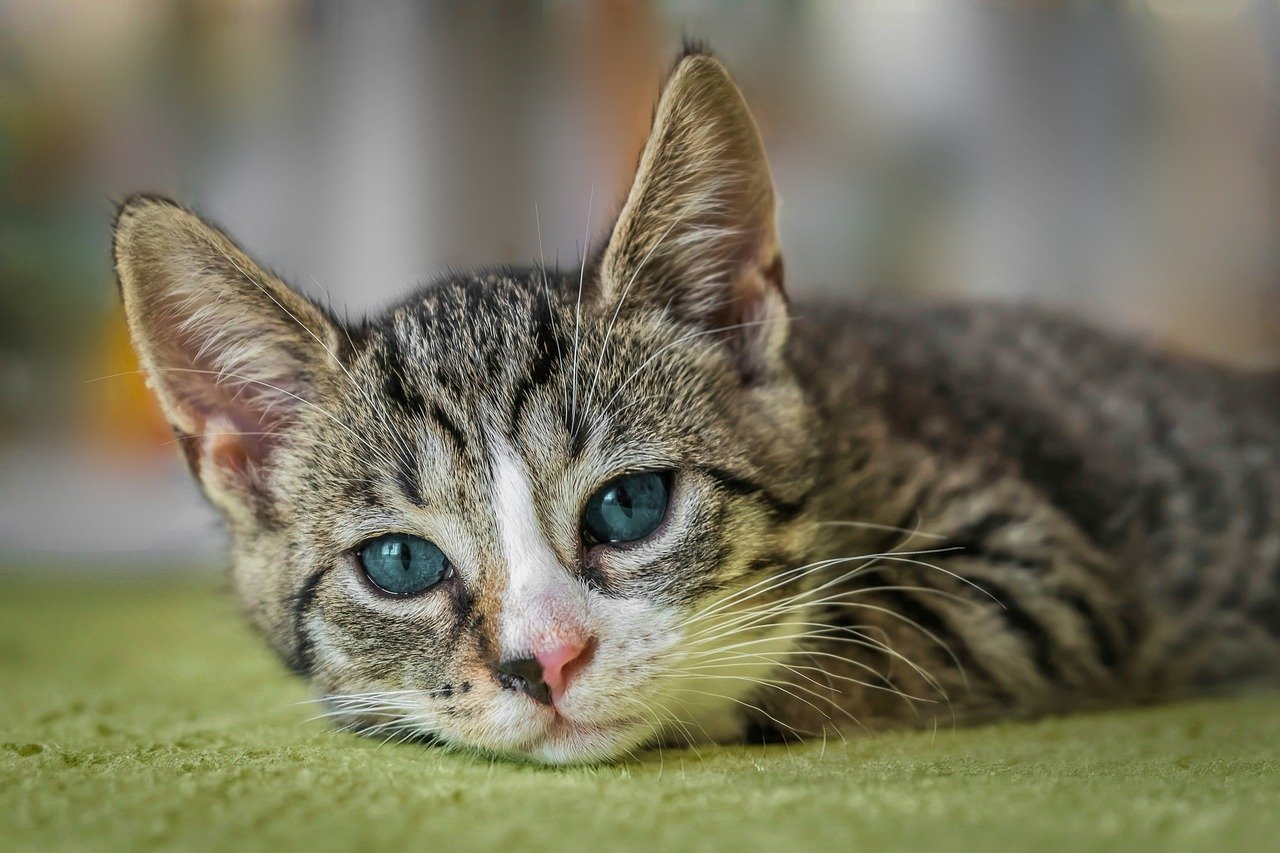
Temperament
The Tonkinese cat is not just a pretty face; they are renowned for their friendly and sociable temperament. These cats thrive on human interaction and are often described as the ultimate companion. Imagine coming home after a long day and being greeted by a furry friend who is just as excited to see you as you are to see them. Tonkinese cats often form strong bonds with their owners, making them excellent companions for families and individuals alike. They are known to follow their humans around the house, always curious and eager to be part of whatever is happening.
One of the most remarkable traits of Tonkinese cats is their affectionate nature. They are incredibly loving and often seek attention and cuddles from their owners. This need for closeness makes them ideal pets for those who enjoy a close relationship with their feline friends. If you’re the type who loves to snuggle up on the couch with a warm purring cat in your lap, the Tonkinese will not disappoint. Their gentle purring can be soothing, almost like a soft lullaby, creating a cozy atmosphere in your home.
These cats have a way of making you feel special. They are not just content to sit on the sidelines; they want to be involved in every aspect of your life. Whether you’re cooking dinner, watching TV, or even working from home, a Tonkinese cat will likely be right there beside you, offering companionship and love. Their affectionate demeanor is a significant reason why they are so loved by their owners. They have an innate ability to sense your mood and often respond with comforting purrs and gentle headbutts, reminding you that you are never alone.
Now, let's talk about their playful nature. Tonkinese cats are known for their energetic behavior, making them a delight to have around. They love interactive games that challenge their agility and intelligence. Whether it's chasing a feather toy or playing hide and seek, these cats are always up for some fun. Their playful antics can provide endless entertainment, not just for themselves but for their humans as well. You might find yourself laughing out loud as they leap and bound around the room, showcasing their athleticism.
Curiosity is another defining characteristic of the Tonkinese cat. They are naturally inquisitive creatures, driven to explore their surroundings. This curiosity can lead to entertaining antics, making them a joy to watch as they investigate new sights and sounds in their environment. It’s not uncommon to see a Tonkinese cat perched on a windowsill, watching the world outside with keen interest, or pawing at a box that just came into the house. Their inquisitive nature often leads them to discover new playthings, turning everyday objects into sources of amusement.
Speaking of intelligence, Tonkinese cats are highly intelligent animals. They often display impressive problem-solving skills and have a knack for learning tricks quickly. This sharpness makes them engaging companions, challenging their owners to keep their environment stimulating. You might find that your Tonkinese can master a new trick in just a few attempts or even learn to open doors! Their intelligence not only makes them fun to train but also means they require mental stimulation to stay happy and healthy.
In summary, the temperament of the Tonkinese cat is a blend of affection, playfulness, curiosity, and intelligence. These traits make them not just pets but true companions who enrich our lives with their vibrant personalities. If you’re considering adding a Tonkinese to your family, prepare for a delightful journey filled with love, laughter, and plenty of playful moments!
- Are Tonkinese cats good with children? Yes, their friendly and sociable nature makes them great companions for children.
- Do they require a lot of grooming? No, their short coat requires minimal grooming, making them relatively low-maintenance.
- Can Tonkinese cats be left alone for long periods? They thrive on companionship, so it's best to avoid leaving them alone for extended periods.
Affectionate Nature
This article explores the unique traits and behaviors of the Tonkinese cat, highlighting their affectionate nature, striking appearance, and playful personality, providing insights for potential cat owners and enthusiasts.
The Tonkinese cat is known for its striking looks, featuring a medium-sized body, short coat, and captivating blue or green eyes. Their unique color patterns set them apart from other breeds, making them visually appealing.
Tonkinese cats are renowned for their friendly and sociable temperament. They thrive on human interaction, often forming strong bonds with their owners, which makes them excellent companions for families and individuals alike.
One of the most delightful characteristics of Tonkinese cats is their . These furry companions are not just pets; they become an integral part of your family. If you've ever dreamed of having a cat that craves your attention and loves to snuggle, then the Tonkinese is your perfect match. Imagine coming home after a long day, and your Tonkinese is there, ready to greet you with purrs and head nudges, as if to say, "I've missed you!"
Tonkinese cats are known for their cuddly disposition, often curling up next to their owners or even on their laps. They thrive on affection and frequently seek out opportunities to bond with their humans. Whether it's through a gentle head rub or a playful nudge, these cats have a way of making you feel special and loved. They are the type of cats that will follow you around the house, eager to be involved in whatever you're doing, as if they are your little shadow.
Moreover, their affectionate nature extends beyond just physical closeness. Tonkinese cats are highly attuned to the emotions of their owners. They seem to know when you're feeling down and will often come to provide comfort, curling up next to you as if to say, "I'm here for you." This emotional intelligence makes them not only great companions but also therapeutic pets for those in need of a little extra love.
In fact, many Tonkinese owners report that their cats exhibit behaviors that suggest they are aware of their owner's moods. They might bring toys to cheer you up or simply sit quietly beside you, offering silent support. It's this deep connection that sets Tonkinese cats apart from other breeds, making them truly special.
Tonkinese cats are known for their playful behavior, often engaging in interactive games and activities. Their energetic nature keeps them entertained and encourages bonding with their owners through play.
Their inquisitive nature drives Tonkinese cats to explore their surroundings. This curiosity can lead to entertaining antics, making them a joy to watch as they investigate new sights and sounds in their environment.
Tonkinese cats are highly intelligent, often displaying problem-solving skills and the ability to learn tricks quickly. Their sharp minds make them engaging companions, challenging owners to keep their environment stimulating.
Like all breeds, Tonkinese cats have specific health considerations to be aware of. Regular veterinary check-ups and a balanced diet are essential for maintaining their overall health and longevity.
Tonkinese cats may be prone to certain genetic health issues, such as dental problems and respiratory conditions. Awareness of these potential concerns can help owners provide better care and preventive measures.
Regular preventive care, including vaccinations and dental hygiene, plays a crucial role in maintaining the health of Tonkinese cats. Establishing a routine with a veterinarian ensures early detection of any health issues.
- Are Tonkinese cats good with children? Yes, their friendly nature makes them excellent companions for families with children.
- How much exercise do Tonkinese cats need? They are playful and energetic, requiring regular playtime and interaction to stay happy.
- Do Tonkinese cats shed a lot? They have a short coat that requires minimal grooming, and they shed less compared to long-haired breeds.
- Can Tonkinese cats be left alone for long periods? They thrive on companionship and may not do well if left alone for too long.
Playfulness
The Tonkinese cat is not just a pretty face; they are the life of the party! Their playful nature is one of the most delightful aspects of their personality, making them a joy to have around. Imagine a furry little acrobat, leaping from one piece of furniture to another, chasing after a feather toy like it's the most important thing in the world. This breed thrives on interactive play, often engaging their owners in games that stimulate both their minds and bodies. Whether it's a simple game of chase or a more complex puzzle toy, Tonkinese cats are always up for the challenge.
What makes their playfulness even more special is their energetic spirit. They are known to have bursts of energy that can turn a quiet living room into a lively playground. You might find them pouncing on imaginary prey, or even trying to catch the elusive red dot from a laser pointer. Their agility and speed are nothing short of impressive, making it essential for owners to provide ample opportunities for play. It’s not just fun; it’s a way for them to exercise, which is crucial for their health.
Moreover, Tonkinese cats are incredibly social creatures. They don’t just want to play alone; they crave interaction with their human companions. This means that when you engage in play, you're not just entertaining your pet; you're also strengthening the bond between you. They often learn to play fetch, and believe it or not, some even enjoy water! Yes, you read that right. Their curious nature might lead them to explore the depths of your bathtub or even join you in the shower. This unique trait is a testament to their adventurous spirit.
To keep your Tonkinese entertained, consider incorporating a variety of toys and activities. Here are some ideas:
- Interactive Toys: Toys that require them to think, like puzzle feeders, can keep their minds sharp.
- Laser Pointers: A classic favorite that can provide endless fun and exercise.
- Feather Wands: Great for engaging their hunting instincts and providing quality bonding time.
- Cat Trees: These not only serve as playgrounds but also as lookout points for their curious minds.
In conclusion, the playfulness of a Tonkinese cat is a vibrant part of their charm. Their desire for interaction and fun means that they will keep you on your toes, and you’ll never have a dull moment with them around. So, if you’re considering welcoming one of these lively felines into your home, be prepared for a delightful whirlwind of activity and affection!
Q: How much playtime does a Tonkinese cat need daily?
A: Tonkinese cats are quite active and should ideally have at least 30 minutes to an hour of playtime each day to keep them happy and healthy.
Q: What are some signs that my Tonkinese is bored?
A: If your cat starts to exhibit destructive behavior, such as scratching furniture or knocking things over, it may be a sign they need more stimulation and playtime.
Q: Can Tonkinese cats play alone?
A: While they can entertain themselves, Tonkinese cats thrive on interaction and are happiest when playing with their owners. It's essential to engage with them regularly.
Q: Are there any specific toys that Tonkinese cats prefer?
A: Tonkinese cats enjoy a variety of toys, but interactive toys, feather wands, and puzzle feeders are often their favorites.
Curiosity
The Tonkinese cat is a bundle of energy and curiosity, constantly on the lookout for new adventures. Imagine having a feline friend who treats your home like a vast, unexplored jungle! Their inquisitive nature drives them to investigate every nook and cranny, making them not just pets but also little explorers. You might find them peeking into cabinets, batting at the curtains, or even trying to figure out how that pesky red dot from a laser pointer works. It's this that adds a layer of excitement to their personality, keeping both them and their owners entertained.
Tonkinese cats are known to display a range of curious behaviors that can be both amusing and endearing. For instance, they often follow their owners around the house, wanting to be part of whatever is happening. This can lead to some hilarious situations where they appear to be “helping” with chores or simply observing with their wide, captivating eyes. Their natural curiosity not only keeps them active but also encourages them to engage with their environment in unique ways. They love to explore new toys, and if you bring home anything new, be prepared for a thorough inspection!
To give you a better idea of their curious tendencies, here are some common behaviors you might notice in a Tonkinese cat:
- Investigative Prowess: They will sniff around every corner, often leaving no stone unturned.
- Playful Antics: Their curiosity often leads to playful interactions with their toys, making them a joy to watch.
- Social Engagement: They are likely to engage with family members, wanting to know what everyone is doing.
It's important to provide a stimulating environment for your Tonkinese cat to satisfy their curiosity. This can include interactive toys, climbing structures, and even puzzle feeders that challenge their minds. After all, a curious cat is a happy cat! By nurturing their inquisitive nature, you not only keep them entertained but also strengthen the bond you share. Remember, a Tonkinese cat thrives on exploration, so embracing their curiosity can lead to a fulfilling and joyful companionship.
Q: Are Tonkinese cats good with children?
A: Yes! Tonkinese cats are known for their friendly and sociable nature, making them great companions for families with children.
Q: How much exercise do Tonkinese cats need?
A: They are quite active and playful, so providing them with interactive playtime and toys is essential for their well-being.
Q: Do Tonkinese cats require special grooming?
A: Their short coat requires minimal grooming, but regular brushing will help reduce shedding and keep their fur healthy.
Q: Are Tonkinese cats prone to any health issues?
A: Like any breed, they may have specific health concerns, so regular vet check-ups are important for maintaining their health.
Intelligence
The Tonkinese cat is not just a pretty face; these felines are known for their remarkable intelligence. Their sharp minds allow them to learn tricks and commands with surprising speed, often outsmarting their owners in playful ways. Imagine having a cat that can fetch a toy or come when called—this breed makes it possible! Their ability to problem-solve is impressive; whether it's figuring out how to open a door or finding the best vantage point to observe their surroundings, Tonkinese cats are always on the move, mentally and physically.
One of the best aspects of owning a Tonkinese is the engaging companionship they provide. They thrive on mental stimulation, which means as an owner, you'll need to keep them entertained. This can be achieved through interactive toys, puzzle feeders, and even simple games like hide-and-seek. The more you engage their minds, the happier and healthier they will be. It’s like having a little furry genius in your home!
To give you an idea of their intelligence level, here are some activities that Tonkinese cats excel at:
- Learning Tricks: They can learn to sit, shake paws, and even roll over.
- Problem Solving: They can figure out how to open cabinets or drawers to access their favorite toys or treats.
- Interactive Play: They enjoy games that challenge their intellect, such as chasing feather wands or playing with laser pointers.
In summary, the intelligence of the Tonkinese cat is a key characteristic that sets them apart from other breeds. Their ability to learn, adapt, and engage in playful activities makes them not just pets, but true companions. If you're looking for a cat that will keep you on your toes and bring joy to your home, the Tonkinese might just be the perfect fit!
- Are Tonkinese cats good for families? Yes! Their friendly and sociable nature makes them excellent companions for families of all sizes.
- How much exercise do Tonkinese cats need? They are quite active and enjoy interactive playtime, so regular play sessions are recommended to keep them healthy and happy.
- Do Tonkinese cats get along with other pets? Generally, yes. Their friendly demeanor often allows them to coexist peacefully with other cats and even dogs.
- What is the average lifespan of a Tonkinese cat? With proper care, Tonkinese cats can live between 12 to 16 years.
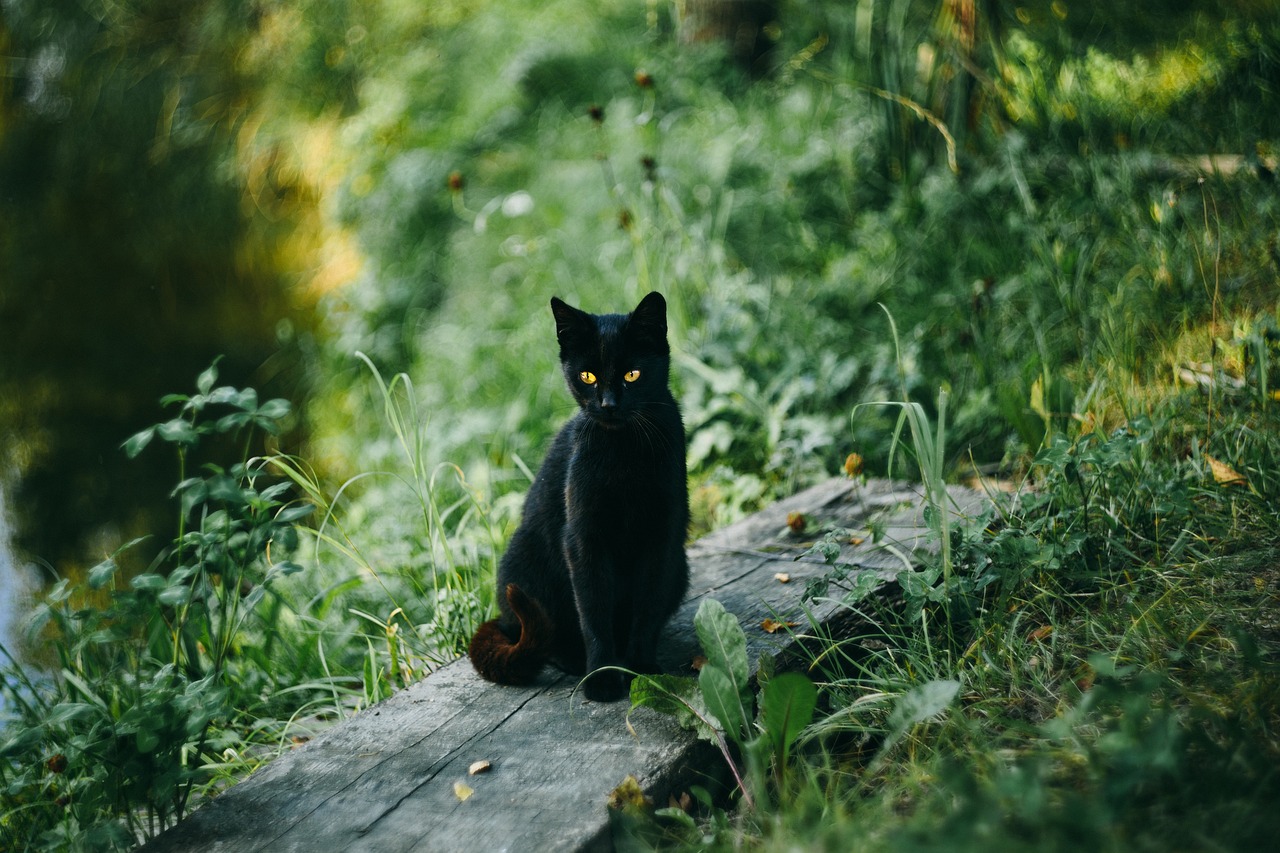
Health Considerations
When it comes to caring for your Tonkinese cat, understanding their health considerations is paramount. Like all breeds, Tonkinese cats have specific health needs that require attention to ensure they live long, happy lives. Regular veterinary check-ups are not just a suggestion; they are a necessity. These visits allow for early detection of potential health issues, which can be crucial in providing timely treatment. Moreover, a balanced diet tailored to their unique needs plays a pivotal role in maintaining their overall health and longevity.
Tonkinese cats are generally robust, but they may be predisposed to certain genetic health issues. Awareness of these potential concerns can empower owners to take proactive steps in providing better care. Common health issues that might arise include:
- Dental Problems: Due to their unique jaw structure, Tonkinese cats can be more susceptible to dental issues. Regular dental check-ups and at-home dental care, such as brushing their teeth, can help mitigate this risk.
- Respiratory Conditions: Like many breeds with a short nose, Tonkinese cats can experience respiratory issues. Keeping their living environment clean and free from allergens can help reduce the likelihood of these problems.
To further enhance your Tonkinese's health, preventive care is essential. This includes keeping up with vaccinations, flea and tick prevention, and routine dental cleanings. Establishing a consistent routine with your veterinarian ensures that any health issues are detected early, allowing for prompt treatment. In addition, providing a stimulating environment filled with toys and activities helps keep your cat mentally and physically fit.
In summary, being a responsible Tonkinese cat owner means being vigilant about their health. By understanding the common health issues they may face and committing to regular veterinary care, you can ensure your feline friend remains a vibrant and loving companion for years to come.
Here are some common questions that potential Tonkinese cat owners often ask:
- What is the average lifespan of a Tonkinese cat? Tonkinese cats typically live between 12 to 16 years, depending on their health and care.
- Do Tonkinese cats require special grooming? Their short coat requires minimal grooming, but regular brushing can help reduce shedding and keep their coat healthy.
- Are Tonkinese cats good with children? Yes! Their friendly and playful nature makes them great companions for children and families.
- How much exercise do Tonkinese cats need? They are active cats and enjoy playtime, so providing interactive toys and engaging activities is essential.
Common Health Issues
The Tonkinese cat, while generally healthy, can be predisposed to certain health issues that every potential owner should be aware of. Understanding these common health concerns is crucial for ensuring a long, happy life for your feline friend. One of the most notable issues is dental problems, which can affect their overall health. It's not uncommon for Tonkinese cats to develop periodontal disease or other dental conditions due to their unique jaw structure. Regular dental check-ups and at-home dental care, such as brushing their teeth, can significantly mitigate these risks.
In addition to dental issues, Tonkinese cats may also face respiratory conditions. These can stem from their breeding lineage, particularly if they have inherited traits from their Siamese ancestors. Symptoms like nasal congestion or frequent sneezing should not be overlooked, as they could indicate underlying health problems. Keeping an eye on your cat's respiratory health and consulting a veterinarian at the first sign of trouble is essential.
Another health concern to consider is obesity, which can lead to various complications such as diabetes and joint issues. Tonkinese cats are known for their playful nature, but without adequate exercise and a balanced diet, they can easily become overweight. Owners should ensure that their cats have plenty of playtime and access to interactive toys to encourage movement. A well-balanced diet tailored to their specific needs is equally important.
To summarize, here are some common health issues to keep in mind:
- Dental Problems: Regular dental check-ups and at-home care are essential.
- Respiratory Conditions: Watch for symptoms like sneezing or nasal congestion.
- Obesity: Ensure regular exercise and a balanced diet to maintain a healthy weight.
Being proactive about your Tonkinese cat's health can lead to early detection and treatment of any issues that may arise. Regular veterinary visits and a keen eye on their behavior will help you keep your furry companion in tip-top shape.
Q: What is the average lifespan of a Tonkinese cat?
A: Tonkinese cats typically live between 12 to 16 years, but with proper care, some can live even longer.
Q: Do Tonkinese cats require special grooming?
A: No, their short coat requires minimal grooming. Regular brushing helps reduce shedding and keeps their coat healthy.
Q: Are Tonkinese cats good with children?
A: Yes! Their friendly and playful nature makes them excellent companions for children and families.
Q: How can I keep my Tonkinese cat mentally stimulated?
A: Provide a variety of toys, engage in interactive play, and consider puzzle feeders to keep their minds sharp.
Preventive Care
When it comes to ensuring the health and happiness of your Tonkinese cat, is absolutely vital. Just like us, these feline companions require regular check-ups and a watchful eye to catch any potential health issues before they escalate. Think of it as being proactive rather than reactive—much like getting a yearly physical for yourself. Regular visits to the veterinarian not only help in monitoring your cat’s overall health but also allow for timely vaccinations that protect against various diseases.
One of the key components of preventive care is maintaining a balanced diet. Tonkinese cats, with their active lifestyles, need a diet that supports their energy levels and keeps their coats shiny. Look for high-quality cat food that lists meat as the first ingredient and is tailored to their specific life stage (kitten, adult, or senior). Additionally, keeping an eye on their weight is crucial, as obesity can lead to a host of health problems. A healthy Tonkinese cat should have a well-defined waist and should not feel overly heavy when you gently press your hands against their sides.
Another essential aspect of preventive care is dental hygiene. Just like humans, cats can suffer from dental diseases that can affect their overall health. Regularly brushing your Tonkinese's teeth can help prevent tartar buildup and gum disease. If you're not sure how to start, ask your veterinarian for tips or consider dental treats that are designed to help clean teeth while your cat enjoys a tasty snack. Maintaining their dental health is a simple yet effective way to ensure your furry friend lives a long and healthy life.
Furthermore, it's important to consider the environmental factors that can impact your cat's health. Make sure your home is safe for exploration, as Tonkinese cats are naturally curious. Secure any hazardous materials, such as cleaning supplies or toxic plants, and provide scratching posts and toys to keep them entertained. A stimulating environment plays a significant role in their mental health, reducing the likelihood of stress-related issues.
Lastly, don’t underestimate the importance of social interaction. Tonkinese cats thrive on companionship, whether it’s with humans or other pets. Regular playtime not only helps them exercise but also strengthens the bond between you and your feline friend. Establishing a routine that includes play, grooming, and cuddle time can make a world of difference in their overall well-being.
- How often should I take my Tonkinese cat to the vet? It's recommended to visit the veterinarian at least once a year for a check-up, but more frequent visits may be necessary for older cats or those with health issues.
- What kind of food is best for a Tonkinese cat? Look for high-quality cat food that lists meat as the first ingredient. Consult your vet for specific dietary recommendations based on your cat's age and health status.
- How can I keep my Tonkinese cat's teeth healthy? Regularly brushing their teeth and providing dental treats can help prevent dental issues. Consult your vet for the best dental care practices.
- Are Tonkinese cats prone to any specific health issues? Yes, they may be prone to dental problems and respiratory conditions. Regular check-ups can help monitor and manage these risks.
Frequently Asked Questions
- What are the key characteristics of Tonkinese cats?
Tonkinese cats are known for their striking appearance, friendly temperament, and playful nature. They have a medium-sized body, a short coat, and captivating blue or green eyes. Their affectionate personality makes them great companions, and their curiosity often leads to entertaining antics.
- How do Tonkinese cats behave with their owners?
These cats are incredibly sociable and thrive on human interaction. They form strong bonds with their owners, often seeking attention and cuddles. If you're looking for a pet that loves to be involved in your life, a Tonkinese cat might just be the perfect match!
- Are Tonkinese cats easy to train?
Absolutely! Tonkinese cats are highly intelligent and tend to learn tricks quickly. Their problem-solving skills make them engaging companions, and with the right stimulation, they can be taught various commands and even play games!
- What health issues should I be aware of with Tonkinese cats?
Like all breeds, Tonkinese cats may be prone to specific health issues, including dental problems and respiratory conditions. Regular veterinary check-ups and being aware of these potential concerns can help you provide better care for your feline friend.
- What kind of preventive care do Tonkinese cats need?
Preventive care is essential for maintaining the health of Tonkinese cats. This includes regular vaccinations, dental hygiene, and routine check-ups with a veterinarian. Establishing a care routine can help ensure early detection of any health issues.
- Do Tonkinese cats get along with other pets?
Yes! Their friendly and sociable nature often allows them to get along well with other pets. However, it's always important to introduce them gradually and monitor their interactions to ensure a harmonious household.
- How much exercise do Tonkinese cats need?
Tonkinese cats are playful and energetic, so they require regular exercise to keep them happy and healthy. Engaging them in interactive play sessions and providing toys can help satisfy their need for activity.


